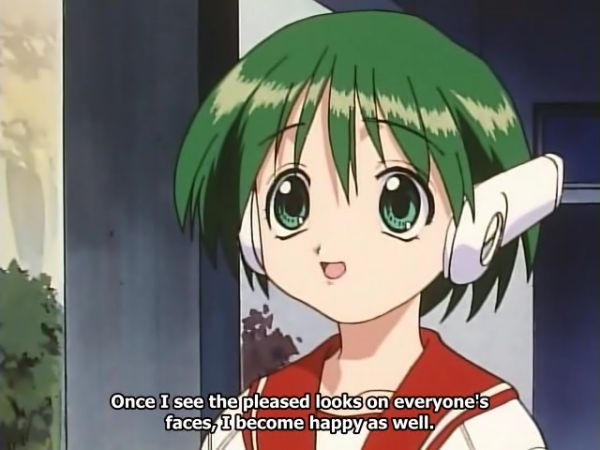
Moderately abominable paladin: Not so gay, but very very celibate.
One shall read much before the eyes pop out. I recently read an article by Dennis Prager.
This Prager fellow is spoken of with the greatest respect by my conservative friends, one would almost expect him to be some kind of hero of our time. Well, I suppose this may be the case under some circumstances.
In any case, it is strange how pieces of puzzles fall together as one lives one’s life, an effect often called “synchronicity” these days.
***
Does anything ever begin? But we can make a beginning on the day when I was quietly reading Dante’s most famous work, the Divine Comedy. Â Now in the (so far slowly) declining years of my body, I am reading up on some timeless classics which every civilized person ought to know, but which I don’t. I mean, I am so busy now that we have all this spare time, so there just hasn’t been time for the pillars of western civilization. This includes Dante who pretty much defined the folk theology of the late Middle Ages. Some of his concepts, like the circles of Hell, have become part of common speech.
While reading my Dante, I found a drive-by reference to “Orlando” and his horn. This sounded vaguely familiar, but something was off. Could Orlando be, apart from a place with an airport, also the Italian name for Roland? Wikipedia sure thinks so. And Roland was someone I vaguely knew from my childhood. Well, not in person, but from the Norwegian folk song “Roland og Magnus Kongjen” (Roland and Magnus the King), also known simply as Rolandskvadet (song of Roland, see also the much longer French “Chanson de Roland”.)
No points for guessing why that particular song lodged in my memory.
Over the next days, I spent some hours reading up on medieval literature. I realized that the peers of Charlemagne’s court were the original paladins, which spawned not only a deluge of romance stories but also some legends that are more comparable to modern superhero stories or the Greek and Norse mythology. These men were seen as larger than life. Though at least some of them were real men from history, they were transformed into archetypes as the centuries passed. Legend became myth.
What does this have to do with Dennis Prager? Â Less than he thinks, I would say. He referenced my beloved paladins in his article “Judaism’s Sexual Revolution: Why Judaism (and then Christianity) Rejected Homosexuality”. In this, he argues not only that the paladins in Chanson de Roland were gay, but that celibate men (and women) are less than human.
I can defend myself, but I would encourage Mr Prager to keep his hands off my paladins. It’s bad enough with the yaoi fangirls writing gay paladin fiction without a renowned Conservative adding fuel to the fire.
***
Now, I don’t think people and their works are generally pure good or pure evil. I like to think I am more nuanced than toddlers, people with borderline personality disorder, and American political bloggers. (I will assume, despite frequent anonymity, that these are three distinct groups.)
And Mr Prager’s article certainly has its good points, and is a welcome – maybe even necessary – contribution to the debate. In particular, someone had to point out that the ancient world was not like USA in the 1950es. Young people today may not know, but the world where Judaism first appeared was horrifyingly alien. Civilization was still young and somewhat experimental. Notably, women were literally treated as slaves: Not in the sense that hubby went from the dinner table straight to the couch without doing the dishes, but in the sense of being shipped off to some unknown house around the age of 9, there to be brutally raped and put to hard work, and harshly beaten if the work did not please their husband / owner and his family. Boys were somewhat better off, but were still subject to sexual abuse by older men on a regular basis. You may remember from history class that in ancient Greece, there was an elaborate system in which men of the upper classes would induce barely pubescent boys to love in the physical sense as well as the more romantic adoration or idealization. This was less regulated in other cultures, but the man-boy love association was a staple of coming of age in early civilizations.
From the dawn of civilization, religion has sought to exert a civilizing influence on human sexuality, among other things. Â (Food being probably even more prominent.) In Bronze Age religions, this sanctification of sexuality took the form of temple prostitution and also public religious rituals of a sexual nature. In other words, rather than have the men roam freely and rape anything that couldn’t fight back, the Bronze Age religions encouraged them to instead visit the temple and have sex with one of the temple priestesses or cute boys (or sometimes sacred eunuchs) residing there.
Dennis Prager is, understandably, horrified by this practice. So was Yahweh’s prophets, and there are several references to these things in the Bible, some oblique and some pretty explicit. But if you  travel with your mind back through time, you will realize that the Bronze Age religions (usually centered on fertility goddesses) did what little they could to tame the male beast. In the stone age, people had lived in tribes where everyone knew everyone and most people were related. With the break-up of the small tribe, people were cast into a world of strangers, and the male libido, no longer under mom’s wakeful eyes, went wild. We have been working on getting this creature integrated in civilization ever since.
Be that as it may, a new age dawned in the Middle East with Judaism. Marriage already existed, but it was mainly a matter of ensured paternity, not a mutual union. Men were still visiting prostitutes as a matter of course. You will find this mentioned casually in the early books of the Bible. Judah impregnated his son’s wife thinking that she was a prostitute, and thus begat the lineage that would lead to King David and ultimately to Joseph of Nazareth. Samson, the Biblical hero who redeemed himself by killing himself along with a couple thousand infidels and a public building, had a well documented habit of sleeping around, which was fine as long as he stuck with prostitutes and did not get attached to them. When he fell in love with Dalilah, things turned nasty. But sleeping around was OK. Sometimes a man got to do what a man got to do.
The prostitutes are still among us, but they are not employed by the churches. Â And the boys are definitely not accepted. (Contrary to some liberal media, the altar boys are generally not there for that purpose.)
Judaism, then, moved the “sacredness” of sex out of the temples and into the home. The sacred union of man and woman was now not a temple ritual, but marriage itself, which had before had a function more akin to slavery.
This is pretty much as far as we have come even today. It has taken its sweet time. Kings and the upper class used to have courtesans and concubines well into the middle ages, if not modernity. (It was usually more discreet in recent years.) The teachings of Jesus Christ about not even ogling other women have few adherents even 2000 years later, but I feel sure its time will come as well. We are talking about changes to basic human behavior, so millennia may be needed to complete the transformation.
***
It is an irony that the focus on homosexuality in the past century has sounded the death knell for the kind of deep affection between men which was idealized not just in the medieval paladin literature, but well into the cowboy age. A bond of love that is not sexual, but intimate in the ways of the soul. When modern liberals read about love between men in ages past, they naturally suppose that they are seeing gay characters, but this is not necessarily the case. Certainly I would have wished that at least conservatives would still be able to recognize this, but even that time may be over.
It is, incidentally, the same with children. Today, a father cannot even bathe his own children for fear that he may be imprisoned as a child molester, should he ever have a fall-out with his wife. Â Women can still be affectionate toward each other and children, long may it last.
***
The sanctification of marriage necessarily means that any other lifestyle becomes suspect. Prager is not the first to bring up this. I was still young when I first read the Rabbinical saying that “a man who is unwed after the age of thirty is under God’s curse”. Certainly this was also the prevailing attitude of the Christian Church, and one of the reasons why I slipped out of there. (I still think of myself as a Christian, but not a Churchian, unfortunately.) Even if a man was celibate in word and thought (this was supposed to be possible, albeit only with divine intervention), he was still depriving a woman of a husband. This was a sin, unless one had a really good excuse.
Prager brings up the point that single men commit almost all coarse crime, like violence and drug crime. He seems utterly unaware of the possibility that the causation could be the other way: That most women would hesitate to marry a notorious criminal. (Many of them have girlfriends, though. I guess these are not the marrying type.) Even so, I think he may be onto something. Having a wife waiting for you at home may really make you less likely to do something that could get you imprisoned or dead. Conversely, the need to constantly impress new girls may be a powerful force to push young men into crimes.
That’s still a bit from assuming that being single means you have given your heart and soul to the powers of Death. It may be the Rabbis who think so and not Prager, but this is hard to say for sure from the text of the article.
Is a bachelor actually only half a human until he finds the woman who will make him complete? Â I think that is the case for some. One of my friends, a good and admirable young man (though less young than when I first met him) certainly seems very troubled by it. Another is more quiet on the topic, but still hatches plans to get hitched. A third… actually, I cannot remember if there is a third. I think the rest may be either married (or nearly so), or still young, or… non-mainstream in various ways as regards their intimate behavior. And even among those, there are some who feel incomplete.
Not I. Well, perhaps a little. Like 98% complete or some such. I enjoyed hanging out with my female best friend a couple times a year, as I did ten years ago. Â But being half a human? Dear complete humans, no offense, but don’t you already have your work cut out for you to keep up with the happiness I have been given, no matter how much sacred sex you have in your marriage? You better amp it up already.
And may Light have mercy on us all if I actually were to level up to my supposed human potential. ^_^

Roland set horn to bloodied mouth, and blew it in his wrath;
rent was wall and marble stones for a distance of nine days’ march.
-Roland & Magnus the King.
So, King Magnus, did the earth move for you too? ^_^











